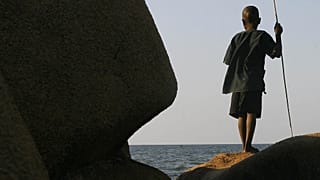South Africa
South Africans living in Alexandra, Johannesburg marked World Cleanup Day on Saturday by cleaning the banks of the polluted Jukskei river.
The river is a source of drinking water for the residents but there is a serious problem with sewage pollution on the river due to an aging infrastructure and a backlog of maintenance.
"I thought it would be a great thing for me to take part in this initiative as it benefits the environment and also the people around the place" said Faith Masango, a volunteer.
**"The water that is in the Jukskei is the one that we are drinking. So we had to clean the river, we had to make sure that the river is clean. No matter we don't clean the whole Jukskei, but wherever we have cleaned is to make sure that continuity of cleaning of the river, that it continues" **Junky Matlala, community leader added.
For Bianca Wannenburg, one of the organisers, a key aim was to demonstrate to residents that it is possible to restore the river to a state where it is safe to swim in it and drink the water.
"It's the community that's the closest to the river that I feel is the most impacted as well, and we're hoping that going forward that they will come and mobilise and see the significance of the river. You know, one day we want to have clean rivers where you can actually swim in them again. You can drink it again. And we want to show and empower communities that it is achievable to get that back."
Around 50 million volunteers in 180 countries have picked up litter beside rivers, on beaches, and in forests on World Cleanup Day.
Each year eight million tons of plastic end up in the oceans, which are also where 70 percent of the world's oxygen is generated.












Go to video
China, South Africa launch cooperation supporting modernization in Africa
01:03
G20 leaders in South Africa adopt declaration despite US opposition
01:07
South Africa confronts stark inequality ahead of G20 Summit
01:10
Activists light up Johannesburg with a host of concerns ahead of G20 summit
01:22
South Africa gears up security for first Africa G20 summit
01:45
Blossoming jacaranda trees brighten up the streets of South African cities